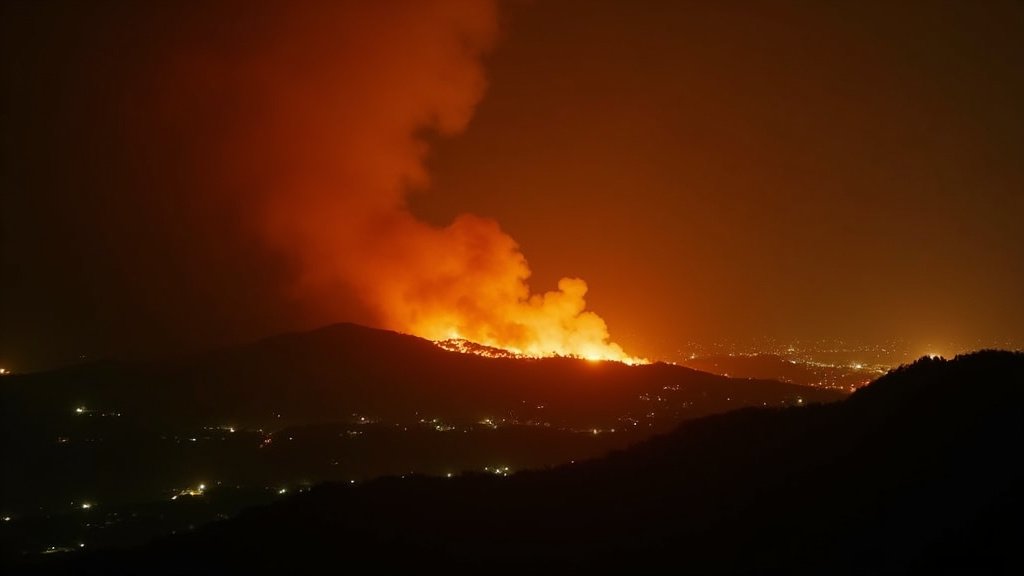Regional tensions have dramatically escalated in the Middle East, reaching a critical juncture following reported Israeli strikes targeting sites within Iran and subsequent exchanges of fire. Amidst this volatile situation, Tehran has issued a stark warning to the United States, cautioning that any American intervention would constitute a \”recipe for all-out war.\”
This direct message was seemingly aimed at US President Donald Trump as the geopolitical landscape becomes increasingly fraught.
Escalation and Strikes
The current surge in hostilities follows reports that Israel conducted overnight strikes on significant Iranian targets. These targets reportedly included uranium centrifuge production sites and weapons factories, affecting locations such as the capital Tehran and the city of Karaj.
Simultaneously with these reported strikes, Israel successfully intercepted drones, indicating attempted retaliatory or preemptive actions from the Iranian side or its proxies. Further underscoring the persistent threat, Israeli military authorities confirmed that more missiles were launched from Iran early Wednesday morning local time.
Human Toll and Evacuations
The conflict is exacting a heavy human toll. Latest casualty figures report 224 deaths in Iran and 24 deaths in Israel. The rising death toll has prompted significant humanitarian concerns.
In response to the escalating violence and potential for further danger, evacuations are underway in both nations. Authorities are working to move civilians away from areas deemed high-risk as the military confrontation intensifies.
US Response and Internal Deliberations
The United States is closely monitoring the situation and taking steps to bolster its posture in the region. As a defensive measure, the US is increasing its military presence in the Middle East with additional fighter jets and warships.
Meanwhile, President Trump convened an emergency meeting at the White House with his national security officials to assess the rapidly developing crisis. Discussions reportedly centered on potential US involvement, including the possibility of providing support for Israeli airstrikes on Iranian nuclear facilities, specifically mentioning sites like Fordow.
However, reports suggest that advisors are divided on the wisdom and implications of direct American military action in the conflict, highlighting internal debate within the administration regarding the appropriate level of US engagement.
Diplomatic and Rhetorical Exchanges
Beyond internal deliberations, President Trump has engaged directly with key figures. He held a phone conversation with Israeli Prime Minister Benjamin Netanyahu on Tuesday, discussing the unfolding events and potential responses.
Trump also utilized social media platforms to issue a direct warning to Iran’s Supreme Leader Ayatollah Ali Khamenei. This public message aimed to pressure Tehran and potentially deter further escalation.
Ayatollah Ali Khamenei responded to the strikes and Trump’s warning through his own online channels. In a defiant stance, he vowed no mercy for Israel and explicitly called for a strong response to the strikes, signaling Tehran’s intent to retaliate and maintain a hardline position.
The exchange of warnings and retaliatory actions between Israel and Iran, coupled with the increased US military posture and internal debate within the Trump administration, underscores the extreme fragility of the regional security environment. The situation remains highly fluid, with the potential for further escalation posing a significant threat to stability in the Middle East and beyond.





